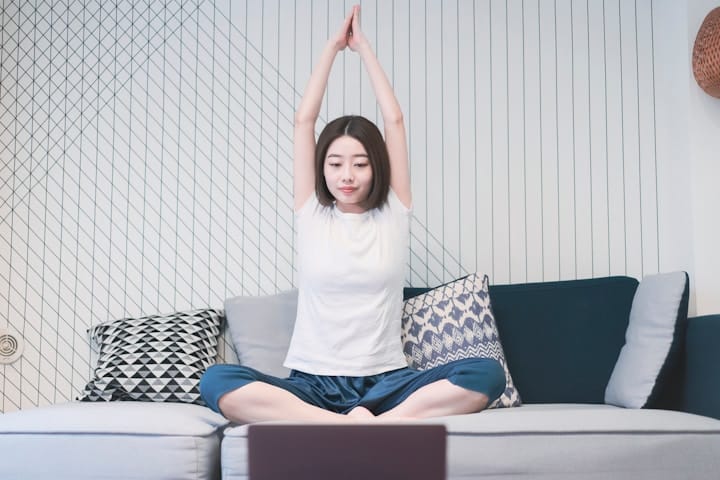Introduction
Performance anxiety is a common phenomenon that many individuals experience, particularly in high-stakes situations such as public speaking, musical performances, athletic events, or job interviews. While a certain level of anxiety can be motivating and help with focus, excessive performance anxiety can hinder one's ability to present themselves effectively and may even lead to avoidance of opportunities. Understanding the psychology behind performance anxiety, recognizing its symptoms, and implementing strategies to manage or overcome it can significantly enhance one’s ability to perform confidently.
This blog post explores the psychological aspects of performance anxiety, its triggers, and practical techniques for overcoming it. By fostering a deeper understanding of this challenge, individuals can empower themselves to face performance situations with greater ease, ultimately enhancing their personal and professional growth.
Skip Ahead
- Understanding Performance Anxiety
- Common Triggers of Performance Anxiety
- The Impact of Performance Anxiety on Performance
- Techniques for Overcoming Performance Anxiety
- The Role of Preparation and Practice
- Cognitive Behavioral Techniques
- Relaxation Techniques to Manage Anxiety
- Seeking Professional Help
- Conclusion
Understanding Performance Anxiety
Performance anxiety, often referred to as "stage fright," is characterized by excessive fear and apprehension regarding one’s performance in front of others. While it is a normal response, particularly during high-pressure situations, performance anxiety can lead to significant distress and impaired functioning.
Several factors contribute to performance anxiety, including:
- Fear of Negative Evaluation: One of the primary sources of performance anxiety is the fear of being judged or criticized by others. This fear is often exacerbated by past experiences of embarrassment or failure.
- Perfectionism: Individuals with perfectionistic tendencies may place excessive pressure on themselves to perform flawlessly, leading to heightened anxiety levels.
- Biological Factors: Some research suggests that genetic predisposition, brain chemistry, and physiological responses to stress may play a role in an individual’s susceptibility to performance anxiety.
Recognizing the underlying psychological mechanics behind performance anxiety is crucial to developing effective coping strategies.
Person Overcoming Anxiety Through Relaxation Techniques
Common Triggers of Performance Anxiety
Understanding the common triggers of performance anxiety can help individuals identify their specific sources of anxiety and address them effectively. These triggers include:
- Public Speaking: One of the most prevalent forms of performance anxiety occurs during presentations or speeches. The thought of speaking in front of an audience can elicit fear and nervousness, often causing individuals to feel underprepared or excessively judged.
- Musical Performances: Musicians may experience anxiety before or during performances due to excessive focus on audience expectations and personal standards.
- Sports Competitions: Athletes can encounter significant anxiety before games or competitions due to the pressure to perform well and the high stakes involved.
- Job Interviews: The desire to make a great impression combined with the uncertainty of the interview process can trigger anxiety for job seekers.
- Social Situations: General social interactions can sometimes lead to performance anxiety, particularly for introverts or those who fear judgment in social settings.
By identifying their triggers, individuals can begin to implement specific strategies tailored to mitigate their performance anxiety.
The Impact of Performance Anxiety on Performance
Performance anxiety can significantly hinder an individual’s ability to perform at their best. When anxiety overwhelms the mind and body, it can lead to various adverse effects, including:
- Cognitive Impairment: Anxiety can cloud judgment and impair concentration, making it difficult to think clearly during performances. This can lead to errors, forgetfulness, and missed opportunities.
- Physical Symptoms: Many individuals experience physical symptoms such as trembling, sweating, rapid heartbeat, or nausea. These symptoms can further exacerbate anxiety levels and affect overall performance quality.
- Avoidance Behavior: Individuals suffering from severe performance anxiety may avoid situations that require performance altogether, limiting opportunities for personal growth and success.
Understanding these potential consequences emphasizes the importance of addressing performance anxiety. With effective coping strategies and support, individuals can mitigate these impacts and approach performances with increased confidence.
Techniques for Overcoming Performance Anxiety
Fortunately, there are several techniques individuals can utilize to manage and overcome performance anxiety effectively. Here are a few powerful strategies:
1. Mindfulness and Meditation
Practicing mindfulness and meditation helps individuals hone their focus and reduce anxiety. Simple mindfulness exercises, such as deep breathing, can ground one’s thoughts and emotions before a performance.
2. Positive Visualization
Using visualization techniques to imagine successful performances can enhance confidence. Visualize each step of the performance, relishing in the sensation of achieving those goals seamlessly.
3. Preparation and Familiarization
Thorough preparation reduces uncertainty. Familiarity with the environment, practicing in front of friends, or rehearsing in similar situations can significantly boost confidence.
4. Focus on Process Over Outcome
Concentrating on performing well rather than fixating on the results can alleviate pressure. Focus on executing each aspect of the performance one step at a time, and allow outcomes to take care of themselves.
5. Cognitive Restructuring
Challenge negative beliefs and self-talk associated with performance anxiety. Replace thoughts like "I will fail" with positive affirmations such as "I am prepared" or "I will do my best."
Utilizing these techniques allows individuals to develop agency over their anxiety, enabling them to perform confidently and effectively.

The Role of Preparation and Practice
Preparation and practice are vital components in combating performance anxiety. The more prepared an individual feels, the more confidence they can bring to their performance. This preparation can take many forms:
1. Skill Mastery
Dedicating time to mastering the necessary skills for a performance enables individuals to focus on execution rather than questioning their abilities. Regular and deliberate practice not only enhances skills but also builds confidence.
2. Mock Performances
Conducting mock performances in front of friends, family, or colleagues offers the opportunity to practice delivery and receive constructive feedback. These exercises can significantly ease anxiety for the actual performance.
3. Detailed Preparation
Creating detailed plans or scripts can help alleviate uncertainty. Knowing what to expect and having a roadmap in place reduces stress and anxiety levels.
By prioritizing preparation, individuals can increase their readiness and confidence, ultimately reducing performance anxiety.
Related Blog: How to Validate Your Startup Idea in 5 Easy Steps
Cognitive Behavioral Techniques
Cognitive Behavioral Therapy (CBT) techniques can be effective in reframing negative thought patterns associated with performance anxiety. Some CBT strategies to consider include:
1. Identifying Negative Thoughts
Keep a journal to capture anxious thoughts as they arise. Identifying patterns in these thoughts can help uncover underlying beliefs that fuel anxiety.
2. Challenging Cognitive Distortions
Once negative thoughts are identified, challenge their validity. Ask, "What evidence do I have for this thought?" or "What would I say to a friend who felt this way?"
3. Replacing Negative Thoughts with Positive Affirmations
Create a list of affirmations or positive statements that can counter negative thinking. Repeating these affirmations before a performance can help boost confidence.
4. Gradual Exposure
Gradual exposure to performance situations increases familiarity and comfort. Begin with low-risk scenarios, progressively working up to more challenging performances.
These cognitive-behavioral techniques can significantly help individuals shift their mindset and reduce anxiety associated with performance scenarios.
Relaxation Techniques to Manage Anxiety
Incorporating relaxation techniques into one’s routine can effectively manage anxiety levels. Strategies include:
1. Deep Breathing Exercises
Practicing deep breathing before a performance lowers heart rate and induces relaxation. Focus on inhaling deeply through the nose and exhaling slowly through the mouth.
2. Progressive Muscle Relaxation
This technique involves tensing and then relaxing each muscle group in the body, promoting physical and mental relaxation. It enhances awareness of physical tension and how to release it.
3. Yoga and Stretching
Engaging in yoga or light stretching before a performance can release pent-up energy and tension, helping one feel more centered and relaxed.
4. Guided Imagery
Imagining a peaceful scene or recalling a happy memory can create a sense of calm and decrease anxiety levels.
By employing these relaxation techniques, individuals can manage their anxiety more effectively, leading to improved performance outcomes.

Seeking Professional Help
When performance anxiety becomes overwhelming and significantly impacts life quality, seeking help from a mental health professional may be necessary. Options for professional support include:
1. Therapy
Working with therapists specializing in anxiety management can provide tailored support and strategies. Cognitive-behavioral therapy (CBT) is particularly effective in treating performance anxiety.
2. Support Groups
Joining support groups allows individuals to connect with others facing similar challenges. Sharing experiences and learning from others’ strategies can build a valuable support network.
3. Medication
In severe cases, medication prescribed by a healthcare professional may be an option for managing anxiety symptoms.
It’s important to remember that seeking help is a sign of strength and willingness to overcome challenges.
Conclusion
Performance anxiety is a prevalent challenge faced by many individuals, impacting their ability to perform effectively in high-pressure situations. By understanding the psychology behind performance anxiety, recognizing its triggers, and implementing evidence-based strategies, individuals can learn to manage and ultimately overcome their fears.
Engaging in thorough preparation, utilizing cognitive-behavioral techniques, and incorporating relaxation methods can significantly boost confidence and performance outcomes. Additionally, reaching out for professional support when necessary ensures that individuals can navigate their anxieties and achieve their goals.
Overcoming performance anxiety is not merely about eliminating fear; it involves developing resilience, honing skills, and cultivating self-compassion. With the right tools, anyone can transform performance anxiety into an opportunity for growth and success.







